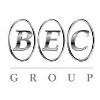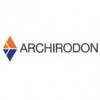Filter interviews by
Gammon Engineers And Contractors Interview Questions and Answers
19 Interview questions
Concrete mix design is the process of selecting suitable ingredients and determining their proportions to produce concrete with desired properties.
Involves selecting the right combination of materials like cement, aggregates, water, and admixtures
Proportions are determined based on desired strength, workability, durability, and other properties
Testing and adjusting the mix to meet specific project requirements
Exam...
M25 ratio refers to the mix ratio of concrete, commonly used in construction projects.
M25 ratio is 1:1:2, which means 1 part cement, 1 part sand, and 2 parts aggregate.
This mix is commonly used for structural concrete works like columns, beams, and slabs.
The strength of concrete with M25 ratio is typically around 25 megapascals after 28 days of curing.
FIFO and LIFO are inventory management methods. FIFO stands for First In, First Out, while LIFO stands for Last In, First Out.
FIFO means that the oldest inventory items are sold first, while LIFO means that the newest inventory items are sold first.
FIFO is commonly used in industries with perishable goods, such as food, while LIFO is more suitable for industries with non-perishable goods.
FIFO results in lower tax ...
The type of DGs used at our site are diesel generators.
Diesel generators are commonly used as backup power sources in various industries.
They are reliable and can provide a continuous power supply during electrical outages.
DGs are often used in remote locations or areas with unreliable grid power.
They require regular maintenance and fuel supply to operate efficiently.
Examples of DGs used at our site include Cummin...
The size of transformers used at the site varied depending on the specific requirements of the project.
Transformers used at the site were of different sizes based on the power demand of the electrical system.
For smaller projects, transformers with a capacity of around 100 kVA were used.
For medium-sized projects, transformers with a capacity ranging from 250 kVA to 500 kVA were used.
For larger projects, transformer...
LT line refers to Low Tension line while HT line refers to High Tension line.
LT line carries low voltage and is used for domestic and small-scale commercial purposes.
HT line carries high voltage and is used for industrial and large-scale commercial purposes.
LT line voltage is typically up to 440 volts, while HT line voltage is above 440 volts.
LT lines are usually overhead lines, while HT lines can be both overhead...
Earthing is the process of connecting electrical equipment or installations to the earth to prevent electric shock and protect against electrical faults.
Earthing involves creating a connection between the electrical system and the earth.
It is done by burying a metal conductor, such as a copper rod, in the ground.
The metal conductor is connected to the electrical system using a wire or cable.
Earthing provides a pat...
We used a stationary type batching plant at the site.
We used a stationary type batching plant for our construction project.
The stationary batching plant had a higher production capacity compared to mobile plants.
It was equipped with multiple storage bins for different types of aggregates.
The plant had a conveyor belt system to transfer the aggregates to the mixer.
We used this type of batching plant because it prov...
We used different types of circuit breakers at the site depending on the specific requirements.
We used air circuit breakers (ACBs) for low voltage applications.
For medium voltage applications, we used vacuum circuit breakers (VCBs) or oil circuit breakers (OCBs).
In high voltage installations, we used sulfur hexafluoride (SF6) circuit breakers.
For specialized applications like generator protection, we used differen...
HR life cycle refers to the stages of an employee's journey within an organization, from recruitment to exit.
The HR life cycle includes stages such as recruitment, onboarding, performance management, career development, and exit
Recruitment involves sourcing, screening, and selecting candidates for open positions
Onboarding includes orientation, training, and integration into the company culture
Performance managemen...
Gammon Engineers And Contractors Interview Experiences
21 interviews found
I applied via Referral and was interviewed in Nov 2024. There was 1 interview round.
(2 Questions)
- Q1. What is the diesel consumption for Dence Bituen material.
- Ans.
The diesel consumption for Dense Bitumen material varies depending on factors such as temperature, mix design, and equipment used.
Diesel consumption for Dense Bitumen material is typically measured in liters per ton of material produced.
Factors such as temperature of the mix, mix design, and type of equipment used can affect the diesel consumption.
For example, a higher temperature mix may require more diesel to heat th...
- Q2. Brief your Past Experience
- Ans.
I have over 10 years of experience in management roles, leading teams and implementing strategic initiatives.
Managed a team of 50+ employees in a retail setting, increasing sales by 20% within one year
Implemented new customer service protocols that resulted in a 15% increase in customer satisfaction
Led cross-functional projects to streamline operations and reduce costs by 10%
Interview Preparation Tips
2. A specific answer is required for the Question.
3. Your language should be apparent communication.
4. Avoid unwanted explanations when answering the question.
I appeared for an interview in Mar 2024.

(2 Questions)
- Q1. Types of ledger
- Ans.
Types of ledger include general ledger, subsidiary ledger, and control ledger.
General ledger contains all financial transactions of a business.
Subsidiary ledger provides detailed information on specific accounts.
Control ledger summarizes information from subsidiary ledgers.
Examples: Sales ledger, Purchase ledger, Cash ledger.
- Q2. Purchase ledger and transfer ledger
(2 Questions)
- Q1. Types of ledger
- Ans.
Types of ledger include general ledger, subsidiary ledger, and control ledger.
General ledger contains all financial transactions of a business.
Subsidiary ledger provides detailed information on specific accounts.
Control ledger summarizes information from subsidiary ledgers.
Examples: Sales ledger, Purchase ledger, Cash ledger.
- Q2. What is mean Fifo and lifo
- Ans.
FIFO and LIFO are inventory management methods. FIFO stands for First In, First Out, while LIFO stands for Last In, First Out.
FIFO means that the oldest inventory items are sold first, while LIFO means that the newest inventory items are sold first.
FIFO is commonly used in industries with perishable goods, such as food, while LIFO is more suitable for industries with non-perishable goods.
FIFO results in lower tax liabi...
Interview Preparation Tips
Skills evaluated in this interview
I applied via Walk-in and was interviewed in Dec 2023. There was 1 interview round.
(7 Questions)
- Q1. What is the process of earthing?
- Ans.
Earthing is the process of connecting electrical equipment or installations to the earth to prevent electric shock and protect against electrical faults.
Earthing involves creating a connection between the electrical system and the earth.
It is done by burying a metal conductor, such as a copper rod, in the ground.
The metal conductor is connected to the electrical system using a wire or cable.
Earthing provides a path for...
- Q2. Which type of DGs used at your Site
- Ans.
The type of DGs used at our site are diesel generators.
Diesel generators are commonly used as backup power sources in various industries.
They are reliable and can provide a continuous power supply during electrical outages.
DGs are often used in remote locations or areas with unreliable grid power.
They require regular maintenance and fuel supply to operate efficiently.
Examples of DGs used at our site include Cummins, Ca...
- Q3. What is the difference between LT and HT line?
- Ans.
LT line refers to Low Tension line while HT line refers to High Tension line.
LT line carries low voltage and is used for domestic and small-scale commercial purposes.
HT line carries high voltage and is used for industrial and large-scale commercial purposes.
LT line voltage is typically up to 440 volts, while HT line voltage is above 440 volts.
LT lines are usually overhead lines, while HT lines can be both overhead and ...
- Q4. Which type of Circuit Breakers you used at Site?
- Ans.
We used different types of circuit breakers at the site depending on the specific requirements.
We used air circuit breakers (ACBs) for low voltage applications.
For medium voltage applications, we used vacuum circuit breakers (VCBs) or oil circuit breakers (OCBs).
In high voltage installations, we used sulfur hexafluoride (SF6) circuit breakers.
For specialized applications like generator protection, we used differential ...
- Q5. How big transformers you used at site
- Ans.
The size of transformers used at the site varied depending on the specific requirements of the project.
Transformers used at the site were of different sizes based on the power demand of the electrical system.
For smaller projects, transformers with a capacity of around 100 kVA were used.
For medium-sized projects, transformers with a capacity ranging from 250 kVA to 500 kVA were used.
For larger projects, transformers wit...
- Q6. Which type of Batching Plant you used at Site
- Ans.
We used a stationary type batching plant at the site.
We used a stationary type batching plant for our construction project.
The stationary batching plant had a higher production capacity compared to mobile plants.
It was equipped with multiple storage bins for different types of aggregates.
The plant had a conveyor belt system to transfer the aggregates to the mixer.
We used this type of batching plant because it provided ...
- Q7. At which project you are working
Interview Preparation Tips
But one thing important be confident while interview
(1 Question)
- Q1. What is Concrete mix design
- Ans.
Concrete mix design is the process of selecting suitable ingredients and determining their proportions to produce concrete with desired properties.
Involves selecting the right combination of materials like cement, aggregates, water, and admixtures
Proportions are determined based on desired strength, workability, durability, and other properties
Testing and adjusting the mix to meet specific project requirements
Examples ...
(1 Question)
- Q1. Tell me M25 ratio
- Ans.
M25 ratio refers to the mix ratio of concrete, commonly used in construction projects.
M25 ratio is 1:1:2, which means 1 part cement, 1 part sand, and 2 parts aggregate.
This mix is commonly used for structural concrete works like columns, beams, and slabs.
The strength of concrete with M25 ratio is typically around 25 megapascals after 28 days of curing.
Interview Preparation Tips

(2 Questions)
- Q1. What is the HR life cycle
- Ans.
HR life cycle refers to the stages of an employee's journey within an organization, from recruitment to exit.
The HR life cycle includes stages such as recruitment, onboarding, performance management, career development, and exit
Recruitment involves sourcing, screening, and selecting candidates for open positions
Onboarding includes orientation, training, and integration into the company culture
Performance management inv...
- Q2. Recruiting procedures
Interview Preparation Tips
I applied via Recruitment Consulltant and was interviewed before Nov 2022. There were 3 interview rounds.

(5 Questions)
- Q1. Company management
- Q2. Machine fitness
- Q3. Eco friendly management
- Q4. Road management
- Q5. Electricals system
I love construction line but one thing please provide some extra pay
Interview Preparation Tips
I applied via LinkedIn and was interviewed in Feb 2022. There were 2 interview rounds.

(2 Questions)
- Q1. Diffrence between quantity survey and billing
- Ans.
Quantity survey involves estimating and managing costs of construction projects while billing is the process of invoicing clients for work done.
Quantity survey involves cost estimation, cost control, and cost management of construction projects.
Billing is the process of invoicing clients for work done on a project.
Quantity surveyors work closely with architects, engineers, and contractors to ensure that projects are co...
- Q2. Asking what type of work you did there
Interview Preparation Tips
I applied via LinkedIn and was interviewed in Feb 2022. There were 2 interview rounds.

(2 Questions)
- Q1. Diffrence between quantity survey and billing
- Ans.
Quantity survey involves estimating and managing costs of construction projects, while billing is the process of invoicing clients for work done.
Quantity survey involves cost estimation, cost control, and contract administration.
Billing involves invoicing clients for work done, including labor, materials, and other expenses.
Quantity surveyors work closely with architects, engineers, and contractors to ensure projects a...
- Q2. Asking what type of work you did there
Interview Preparation Tips
Assistant Manager HR & Administration Interview Questions & Answers
posted on 26 May 2022

(2 Questions)
- Q1. Why do you want work here
- Ans.
I am drawn to this organization for its commitment to employee development and its innovative approach to HR practices.
The company's strong reputation for fostering a positive workplace culture aligns with my values.
I admire your focus on continuous learning and development, as seen in your recent training programs.
The opportunity to contribute to strategic HR initiatives excites me, especially in a dynamic environment...
- Q2. I have same kind of HR Admin experience in the post
(3 Questions)
- Q1. I feel I am similar to this post I have same kind of HR Admin experience for the post
- Q2. What are your shirt term goals
- Ans.
My short-term goals focus on enhancing HR processes, fostering team collaboration, and improving employee engagement.
Streamline the recruitment process by implementing an applicant tracking system to reduce hiring time by 20%.
Conduct regular training sessions to enhance team skills and promote a culture of continuous learning.
Develop and launch an employee engagement survey to gather feedback and identify areas for imp...
- Q3. I would like to semy self in managerial roll
- Ans.
I aspire to take on a managerial role to leverage my skills in HR and administration for effective team leadership and organizational growth.
I have experience in leading HR projects, such as implementing a new recruitment strategy that reduced hiring time by 30%.
I excel in conflict resolution, having mediated disputes between team members that improved workplace harmony and productivity.
I am skilled in performance mana...
Interview Preparation Tips
Top trending discussions






Gammon Engineers And Contractors Interview FAQs
Tell us how to improve this page.
Gammon Engineers And Contractors Interviews By Designations
- Gammon Engineers And Contractors Quantity Surveyor Interview Questions
- Gammon Engineers And Contractors Planning Engineer Interview Questions
- Gammon Engineers And Contractors Assistant Manager Interview Questions
- Gammon Engineers And Contractors Asst Store Interview Questions
- Gammon Engineers And Contractors Assistant General Manager Interview Questions
- Gammon Engineers And Contractors Junior Engineer Electrical Interview Questions
- Gammon Engineers And Contractors Site Engineer Interview Questions
- Gammon Engineers And Contractors Supervisor Interview Questions
- Show more
Interview Questions for Popular Designations
Overall Interview Experience Rating
based on 13 interview experiences
Difficulty level
Duration
Interview Questions from Similar Companies
Gammon Engineers And Contractors Reviews and Ratings
based on 301 reviews
Rating in categories
|
Assistant Manager
99
salaries
| ₹4.2 L/yr - ₹10 L/yr |
|
Civil Engineer
46
salaries
| ₹3 L/yr - ₹7 L/yr |
|
Deputy Manager
36
salaries
| ₹7 L/yr - ₹14 L/yr |
|
Civil Site Engineer
22
salaries
| ₹2.4 L/yr - ₹5.5 L/yr |
|
Safety Officer
16
salaries
| ₹2.8 L/yr - ₹5.1 L/yr |

J K Fenner

Saudi Binladin Group

McNally Bharat Engineering

Bahwan Engineering
- Home >
- Interviews >
- Gammon Engineers And Contractors Interview Questions














